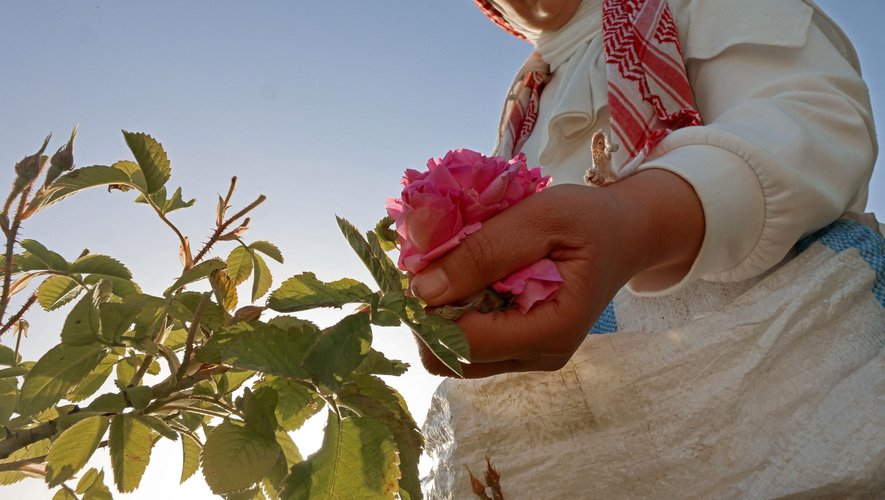(AFP) – The sun has barely risen when Zahraa is already harvesting with a sure gesture, on the heights of his village in eastern Lebanon, the delicate Damask roses that will be used to make rose water, very prized for cosmetics and pastries.
A large white bag tied at the waist, Zahraa Sayed Ahmed picks the fragrant flowers as far as the valley. “There is nothing more beautiful than roses,” says the 37-year-old woman, whose first name means “flower” in Arabic, with a smile.
“The rose season is the most beautiful season here,” she adds, leaning over the rosebushes, her white clothes contrasting against the shades of green and pink.
The season only lasts a few weeks in Qsarnaba, a village on the eastern plain of the Bekaa where the tradition has been passed down for generations.
It is mostly women who harvest the precious flowers with the help of gloves with holes in the thorns.
The Damask rose, which bears the name of the Syrian capital located on the other side of the mountains, is the flower most used for the production of the essential oil contained in perfumes and cosmetic products. Specialists swear by its anti-infectious and relaxing therapeutic properties.
Rose water is also used in the Middle East in pastries or as a refreshing drink.
Exported to Europe, particularly during the Crusades, this heady-scented rose has since been cultivated in Syria, France, Morocco, Iran and Turkey.
Leila al-Dirani, the owner of the field, is also at work with her husband and son. This year, “we can no longer afford to hire workers,” says the 64-year-old horticulturist.
“The (sale) prices are not good at all,” she laments.
Since late 2019, Lebanon has been hit by an economic crisis that has depreciated the currency and plunged much of the country into poverty.
According to Daher al-Dirani, a local official, all the crops “have lost almost 80% of their value (…) because of the crisis”.
– “Roses give hope” –
However, Leila al-Dirani keeps smiling: “roses give hope, they calm you down and give you the strength to continue”.
In a shed covered with a carpet of roses, the harvest is weighed, the workers are paid according to the quantity collected and the precious picking is divided into bags.
Then Zahraa distils the harvest in her garden to make rose water.
She bottles and labels her small production manually to sell it across the country.
“Producing rose water is part of our heritage,” says Zahraa, filling a copper still that belonged to her grandfather with flowers.
“We grew up producing rose water,” she points out. “In every house in Qsarnaba there is a still, however small.”
With a kilo of flowers, the 30-year-old produces up to half a liter of rose water. She also makes jams and syrups, fills sachets with dried flowers and prepares herbal teas.
The village “produces 60% of the roses and rose water in all of Lebanon”, proudly assures Zahraa. A production for which Qsarnaba deserves, according to her, the title of “village of roses”.

